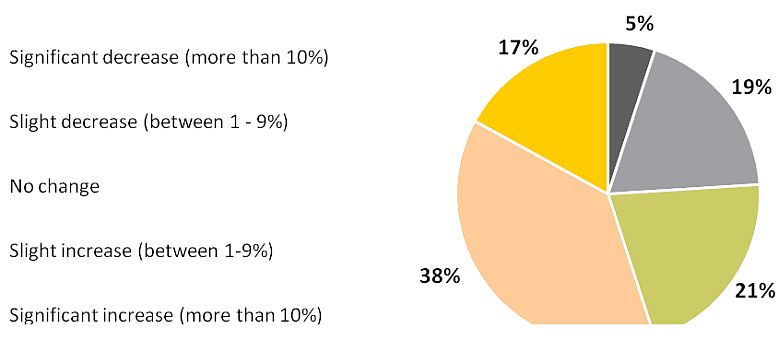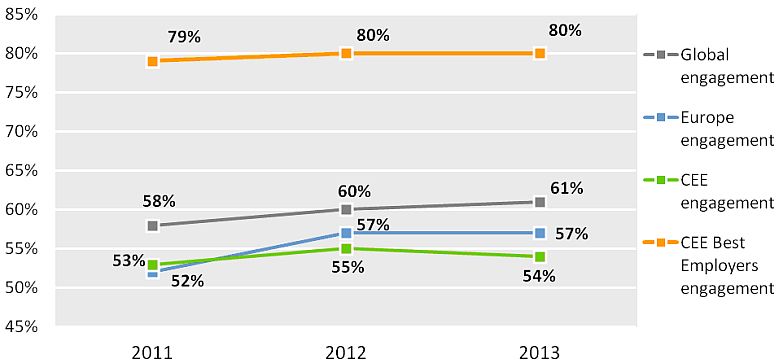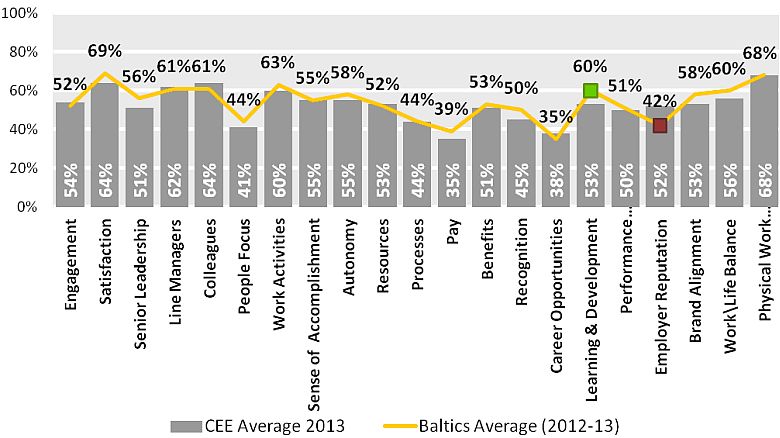Analytics, Business, Employment, EU – Baltic States, Insurance, Markets and Companies
International Internet Magazine. Baltic States news & analytics
Thursday, 25.04.2024, 11:58
Study Best Employer 2014: importance of personnel management on the rise
 Print version
Print version
The study includes a total of 19 various indexes that reflect employee satisfaction, involvement and decorum – whether they are positive in their comments about their employer, thereby improving its reputation, whether they are loyal and exude effort to help the company attain its objectives. Employers can compare the data for their industry with the data for other industries as well as the other Baltic and European countries.
Personnel managers’ role increasingly important to employees, budgets rising
The study compares the best personnel management
practices in the region. Aon observes
changes in the role of personnel management – while formerly personnel experts
mostly performed support functions, in the recent years they are increasingly
often seen as partners and strategists. 35% of personnel managers consider
themselves partners and 37% strategic planners. Compared to the previous year,
personnel management budgets have increased at 55% of the surveyed companies.
 |
| Employee satisfaction and involvement influence on companies’ performance indexes |
For employers that have the status Best Employer status,
the overall performance indexes are 30% higher than the market’s average. A
well-thought-out personnel management strategy and company’s staffing policy
help exceed the average market indexes significantly.
 |
| Employee satisfaction, % |
The involved employee comes to work to contribute, whereas those uninvolved expect their job to give them something.
Managers and executives covered by the study demonstrate steadily high involvement – 75% for the entire world, 83% in Central and Eastern Europe. This is a very important indicator that influences the given company’s performance in direct and indirect ways. The managers take the decisions regarding the company’s brand, objectives, remuneration policy, communication with employees, work procedure and innovation.
The leaders have a direct effect on the involvement of the other employees. Today, the ability to engage the others is the main, and not just a recommended requirement for management. Some of the most critical aspects of leadership driving involvement include creating a common goal and moving towards it, strong personality and integrity, the ability to develop budding talents and keep them from leaving the company, demonstration of know-how and assessment, the ability to collaborate with fellow employees. Companies where leader involvement figures are not ignored, and where new leaders are able to develop, gain a certain competitive edge.
What characterises an average Eastern European company
High performance expectations and secure jobs – employees have to understand how important every individual’s performance is for the achievement of common goals. 68% of respondents confirm that the environment at their workplace motivates them to strive for higher achievements. The “authenticity” and employees’ satisfaction with the employer’s image have a major effect on employee involvement. 2/3 of respondents believe that their company has a good reputation.
Wages and career opportunities – satisfaction
with remuneration is a highly important matter for most employees. Only 35% indicate
that their performance has a direct effect on their remuneration, whereas 39% percent
are pleased with their wages as compared to other employment opportunities.
Keeping talented employees from quitting is increasingly difficult, and only
44% of respondents in the region believe that their company is capable of
preventing the most valuable employees from quitting.
 |
| Baltics excel at employee training and development opportunities |
The employee involvement rating for the Baltic countries is 2% lower than the average for the region. However, the satisfaction level is at 69% – an excellent achievement. Employee opinion of training and development opportunities is 7% higher. Whereas importance attached to the employer’s reputation is 10% lower than the average for the region. Employees at Baltic companies are, as compared to the rest of the region, better informed about the remuneration system and how their performance correlates to their wages. 68% of respondents in the Baltics believe that they can withstand the stress level concerning their assignments very well. The greatest negative difference deals with company openness and company management’s decisions targeted at every individual employee.
Talent management is becoming increasingly important – in the Baltic countries, 70% of employees believe that their talent and knowledge is used only in part, that they could contribute more and that their employers could demand more of them. Personnel management specialists agree that, indeed, 15% to 17% of employees’ potential is not achieved.
The Best Employers study is performed by the company Aon on an annual basis. The popularity of the study has been growing worldwide since the beginning of the 1990s, whereas in Central and Eastern Europe the study has been done since 2001. The methodology to measure employee satisfaction has been steadily upgraded in line with changes in personnel management processes and latest trends on the labour market. Companies that have been in the market for at least two years and have a staff of at least 50 can participate in the study.
Aon is the leading global provider of human resources solutions. The company has 59,000 employees in 500 offices located in 120 countries around the world.








 «The Baltic Course» Is Sold and Stays in Business!
«The Baltic Course» Is Sold and Stays in Business!

